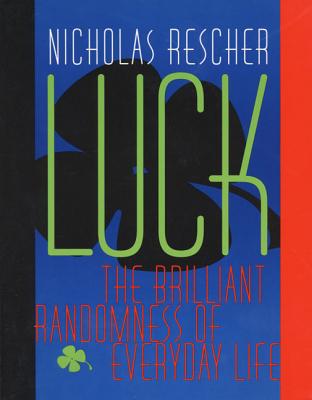Luck touches us all. "Why me?" we complain when things go wrong--though seldom when things go right. But although luck has a firm hold on all our lives, we seldom reflect on it in a cogent, concerted way.
In Luck, one of our most eminent philosophers offers a realistic view of the nature and operation of luck to help us come to sensible terms with life in a chaotic world. Differentiating luck from fate (inexorable destiny) and fortune (mere chance), Nicholas Rescher weaves a colorful tapestry of historical examples, from the use of lots in the Old and New Testaments to Thomas Gataker's treatise of 1619 on the great English lottery of 1612, from casino gambling to playing the stock market. Because we are creatures of limited knowledge who do and must make decisions in the light of incomplete information, Rescher argues, we are inevitably at the mercy of luck. It behooves us to learn more about it.










